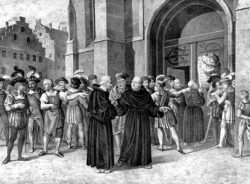The Lutheran Reformation
Luther initiated a reformation movement with the aim of correcting the practices as well as the doctrine of the Church. He did not intend to found a new Church. But faced with the refusal of Rome, he gave in and accepted the breach he had not intended.
Luther's revolt
In 1517 Luther initiated a reformation movement by publicising his 95 theses against the indulgences. Thanks to printing his views were widely publicised in Europe. Based on the New Testament, they aimed not only at correcting the abuses of the Catholic Church, but also its doctrine. He wanted to eradicate or modify all that was against the teachings of the New Testament. He wanted a deep reform of the present Church. The refusal of the Pope to listen to him, and the ensuing excommunication led to the breach he had not wished.
The Lutheran Church
Thus was a new Church created called in Germany the evangelical Church, because it claimed a [glosssary_exclude]revival of the gospel.
The new doctrine was summed up in Luther’s two catechisms dated 1529 and in The Augsburg Confession, the work by Philipp Melanchton, his collaborator.
Mass was deeply changed. It was performed in German and no longer in Latin and based on :
- preaching the Gospel,
- singing hymns (Luther composed several of them),
- the Eucharist or Holy Cmmunion in both kinds – i.e. bread and wine.
The Virgin Mary, the saints and the dead were no longer worshipped.
The spreading of lutheranism
Throughout the German empire, the Lutheran Reformation spread over princes’ states and many cities in Northern Germany.
Luther appealed to princes for their support to found the new Church and to guarantee the appropriate form of worship.
The Lutheran Reformation also spread to Denmark and Norway, where national Churches were promoted by sovereigns.
In the kingdom of France, only the Reformed churches gained a foothold.
Associated tours
-
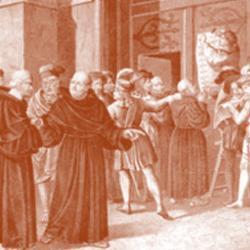
Introduction to the Reform in the 16th century
The aim of this tour is to present the main events and figures of the early stages of French Protestantism: from Jean Calvin, to Henri IV, including Clément Marot and...
Associated notes
-
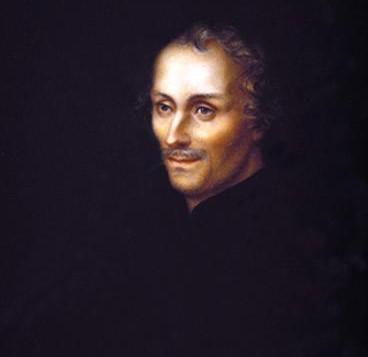
Philipp Melanchthon (1497-1560)
Melanchton was a humanist and a theologian who adapted Luther’s ideas. His attempts to reconcile the different reformation trends failed. -
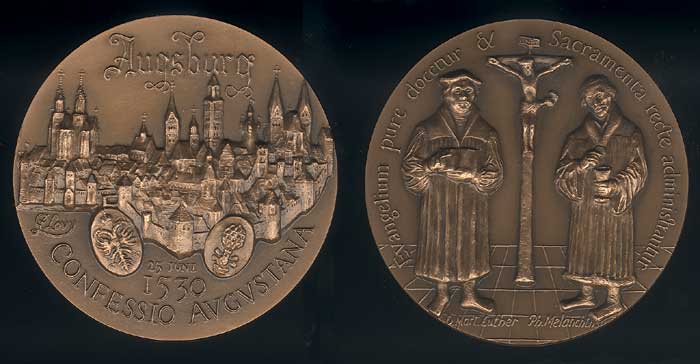
The Augsburg confession (1530)
This confession of faith was written by Philipp Melanchton for the diet in Augsburg in 1530 and was meant as a unifying text. It was based on the Scriptures and... -
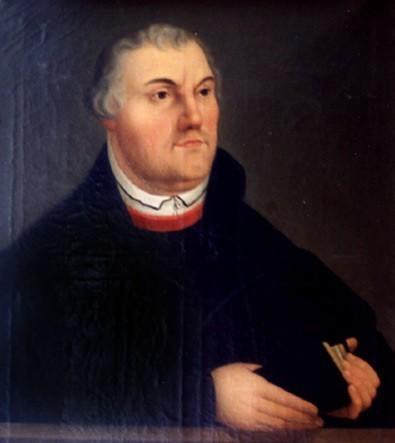
Martin Luther (1483-1546)
Martin Luther’s theology is based on the Bible and not on dogmas. Referring to Paul’s Epistle to the Romans, he claims that salvation is given through God’s grace and not... -

Martin Luther and public life
Luther’s teaching, writings and sermons were widely distributed. After his 95 theses had been posted, and he was condemned by the Pope as a theologian, many of his fellow citizens... -
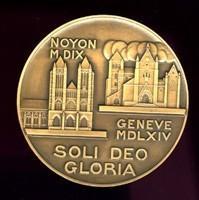
Martin Luther, his theology
Luther founded his theology on the Bible and more specifically on the Epistle of Paul to the Romans, as far as salvation through God’s grace and not through one’s deeds... -
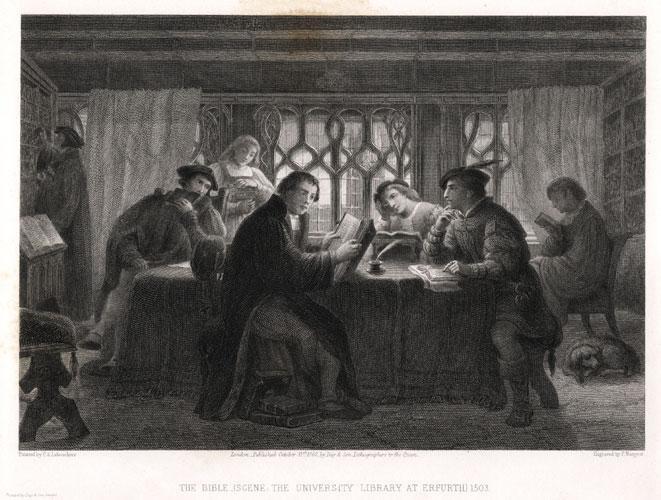
Martin Luther, translator of the Bible
As early as 1517 Martin Luther started translating the Psalms into German. In 1521, when he was imprisoned in Wartburg, he set about translating the New Testament. This great undertaking... -
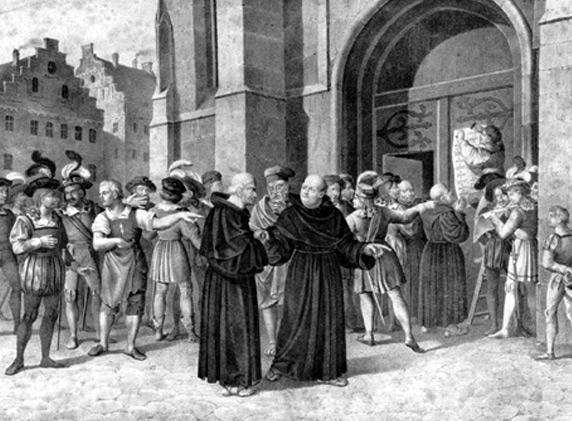
Martin Luther’s 95 theses
On October 31, 1517, Martin Luther published his 95 theses against Indulgences. This was the origin of the schism in the Church, which gave birth to the Reform. Luther’s ideas... -
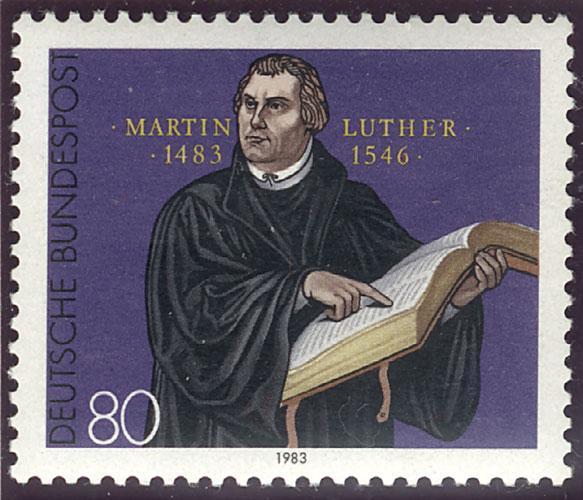
Luther and Bible Reading
Before the Reformation the Bible was mainly read by a priest to a church community during an act of worship, and usually in Latin. This practice changed with the Reformers :...

